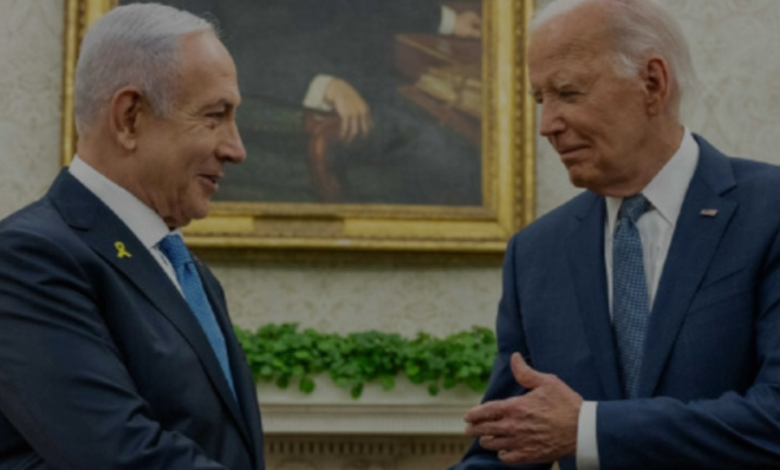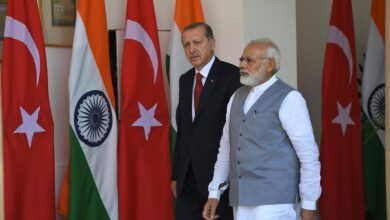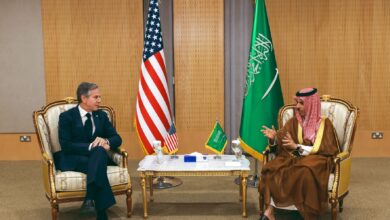Biden ‘stressed the urgency’ of bringing cease-fire talks to a close during a call with Netanyahu

US President Joe Biden, in a Wednesday phone call, urged Israeli Prime Minister Benjamin Netanyahu to bring to a conclusion the negotiations over an agreement that will bring a cease-fire to the besieged Gaza Strip and free the hostages being held there.
The White House summarized: “The President underscored the need to move forward on the cease-fire and the process of releasing hostages and negotiations that are coming up in Cairo to eliminate all remaining obstacles.”
It added that Biden and Netanyahu “discussed active and ongoing U.S. efforts to support Israel’s defense against all threats from Iran, including its proxy terrorist groups Hamas, Hezbollah, and the Houthis, to include ongoing defensive U.S. military deployments.” The call came amid a standoff in the talks, with the negotiators due back in Cairo by the end of the week for a session in which the US official said last week that he hoped to wrap up the months-long talks.
The latest round of mediated negotiations wrapped up Friday in Doha, Qatar, with the US presenting the parties what the White House said was a “final bridging proposal” it has placed on the table between Israel and Hamas — which it said are in line with the principles supported by Biden on May 31. The details of the proposal are being kept under wraps. Netanyahu came up with a new package of conditions, but since that time, Hamas has rejected it.
In a statement, the movement said the “proposal meets Netanyahu’s conditions and aligns with them, particularly his refusal of a permanent cease-fire, (of) a complete withdrawal from the Gaza Strip, and his insistence on continuing the occupation of the Netzarim Junction, the Rafah crossing and the Philadelphi Corridor.”
The Palestinian group was addressing two strips of land in Gaza, one of which was recently constructed by Israel and that divides the coastal territory into a northern and southern part. The Philadelphia Corridor runs along the Gaza-Egypt border. The Rafah border crossing is along the Philadelphi Corridor.
Hamas has been adamant for Israeli forces to pull out from Gaza in their entirety and for the war to come to a complete cessation as aspects of any cease-fire agreement for a long time. But Netanyahu tossed the conditions, declaring only that his troops would exit Gaza as he sees fit. He (Netanyahu) also set new conditions in the hostage swap file and retracted from other terms which obstruct the completion of the deal,” Hamas added.
The group reiterated its commitment to what it agreed upon in July based on a plan for a ceasefire that Biden made public in May and a UN Security Council resolution that endorsed the same in June.
In the weeks since, he has tried to arrange a deal between Israel and Hamas that would ensure a swap of prisoners and a cease-fire, enabling humanitarian aid to enter Gaza. Netanyahu’s refusal to agree so far to a deal that would stop the war has gotten in the way of those efforts.
Israel has pursued its brutal offensive targeting the Gaza Strip even after the Palestinian resistance group Hamas launched a strike on Oct. 7, in defiance of a UN Security Council resolution demanding an immediate cease-fire. Health authorities think the violence may have led to more than 40,170 deaths, mostly women and children, and more than 92,740 injured.
The years of blockade in Gaza have caused acute shortages of food, clean water, and medicines, sending most of the region into ruins. The International Criminal Court also accuses Israel of genocide and has already issued rulings that the military operations in Rafah, to the south, where over a million Palestinians had fled before it was invaded on May 6, should be stopped.



